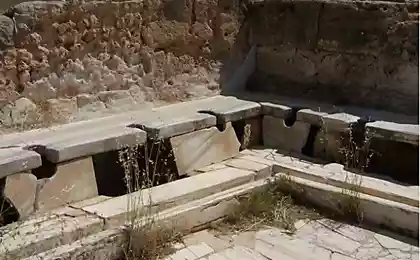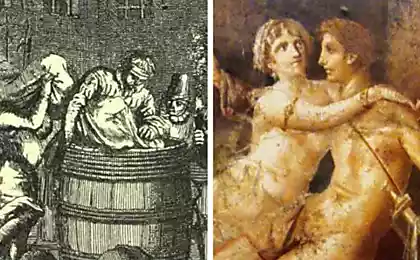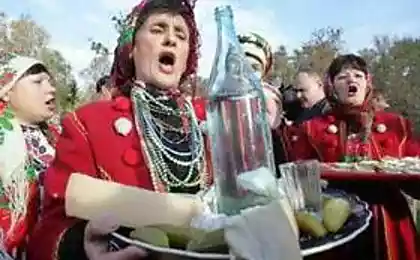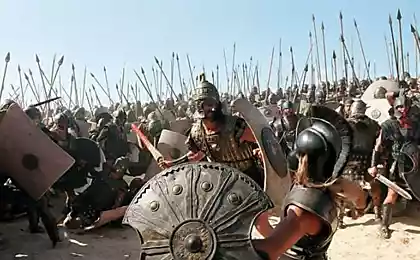1081
Strange work in Ancient Greece and Ancient Rome
Today there are thousands of different professions. But historians say that in the old days there were no less than the jobs that are now completely forgotten. In our review of 10 very strange job, which offered residents of ancient Greece and ancient Rome.
1. silver miner

On the silver mines in ancient Rome used manual labor, mostly children. The average life expectancy in the silver mines accounted for only 3 months, but it did not bother the Romans, because they used slave labor. Young children are literally stuffed into the deep and very small holes that were dug by hand. Inside it was hot and stuffy, and as the silver ore was smelted right next to the mines, the air was full of poisonous gases.
2. Sterkorarius

Rome was known for its extensive sewer system. But despite this, the majority of the Romans did not have access to it (those who live in the hills, or those who were too poor to hold water). At the same time no one wanted to in his home seeped odors from the sewer. Thus it was invented a special profession - sterkorarius. These people went home and cleaned out the sewers underneath. Wastes of people were taken in carts to the country and sold to farmers.
3. Urinator
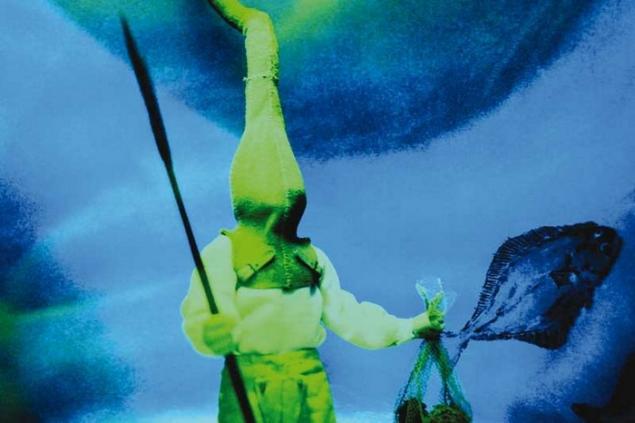
Urinatorami called vodolazov- rescuers from Ostia. These divers dived to a depth of 30 meters using a cap, filled with air, in the form of modern diving bell and lead weights. The danger of this work is obvious, but urinatoram paid very well.
4. The carrier people
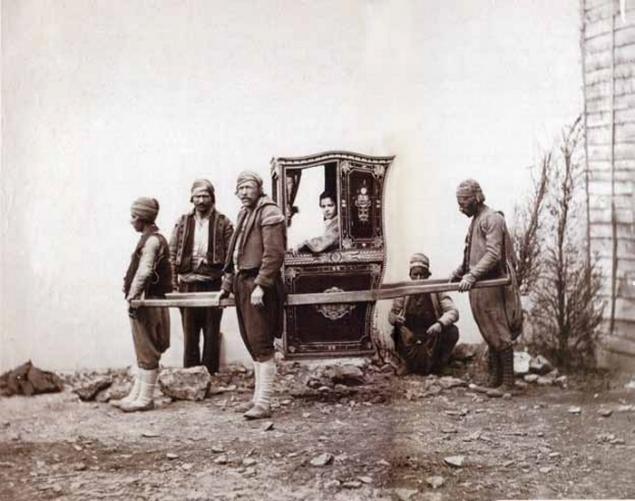
Carriers of people were slaves, whose job was to carry important people in small litters. It was a heavy and tedious job, and often - and dangerous (worth only imagine how hard it was to raise the litter up the stairs). The porters, were generally well dressed and well-fed.
5. Gimnaziarh
As in ancient Greece was a very popular track and field, the position of gimnaziarha considered quite honorable. Despite the fact that it was a dirty job - gimnaziarham had to anoint oil and wash the athletes, as well as to clean up the whole school - a position similar polutrenera-poluorganizatora competitions highly paid. Gimnaziarhov elected for one year, and to the applicants must meet the following requirements: age 30 to 60 years and the presence of large equity.
6. The creator of tablets with curses
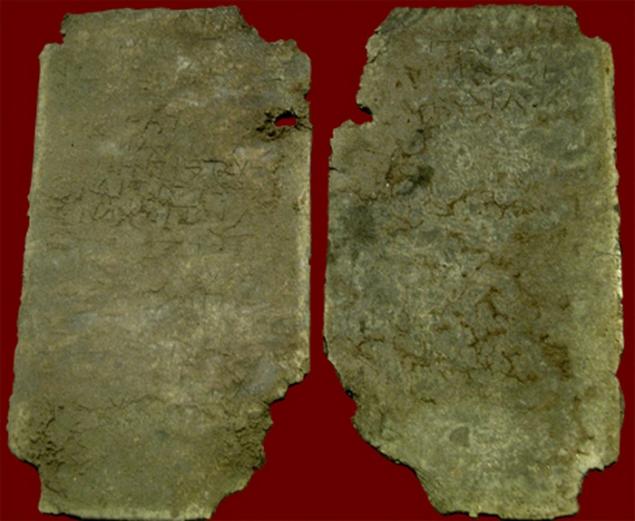
Tablets cursing is a thin sheet of a soft lead, on which he wrote personal curse foe. Then these plates were fastened with nails to the walls of the temples or shrines. Allegedly, the gods could see what was written on the plates, and to fulfill these wishes. Poor creators of tablets every day to listen to complaints and woes of their customers, and then record them on the plates.
7. Organizer of orgies
Organizer of orgies had a very unusual, but interesting work. He had to plan holidays for rich people and enjoy a host of privileges and concessions. Organizer of orgies provide guests with food, women, music and accommodation. Representatives of the profession is not respected, but always hire them.
8. Funeral Clown
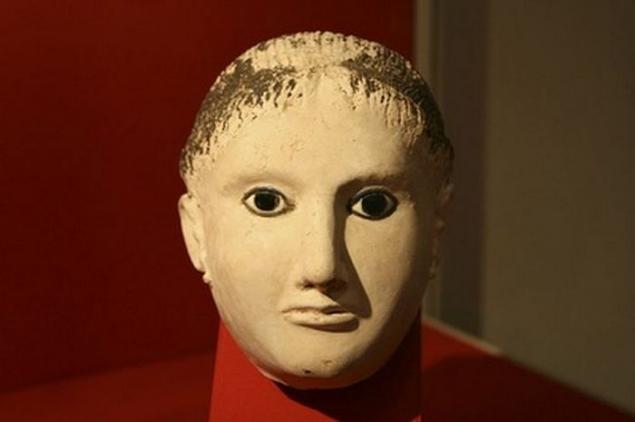
Funeral Clown had to wear things a deceased person to wear a mask, copying the dead man's face, and dancing at the funeral. The Romans believed that it calms the soul of the dead and bring joy to his relatives. At the funeral, the people danced and grimace next to the corpse. Their services are well-paid, and eventually funeral clown often became director of the troupe pantomime.
9. slingers
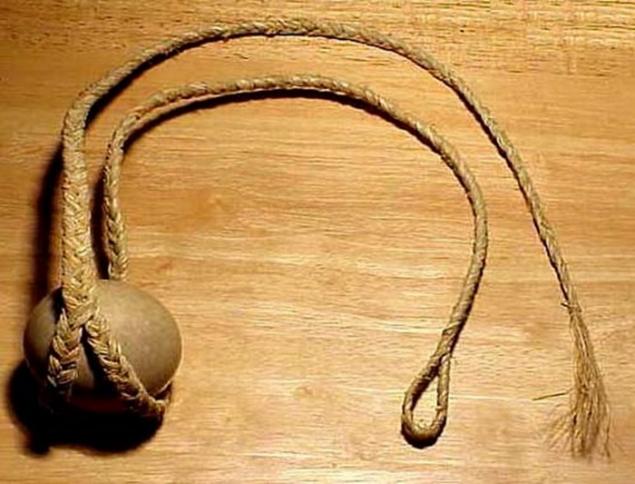
Slingers were an integral part of the Roman army, as they effectively engage targets at a significant distance. Slingers start training in early childhood, they are taught to kill animals to feed itself. Those who missed, remained without dinner, so boys were taught very quickly. Slingers could hurl stones weighing up to a pound at a distance of 200 meters.
10. Water organist
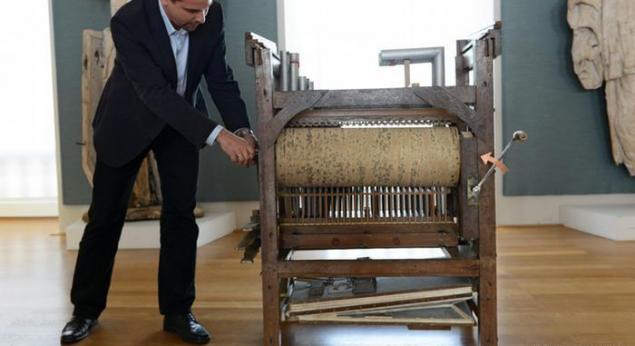
Water bodies work the same way as the wind, but instead of air in them is water, injected a natural source (eg, waterfall) or manual pump. This musical instrument was very popular in ancient Rome. , Regular competitions to play the organ. Organists also planted on the best places in the gladiatorial combat, as bodies were used for musical accompaniment fights.
1. silver miner

On the silver mines in ancient Rome used manual labor, mostly children. The average life expectancy in the silver mines accounted for only 3 months, but it did not bother the Romans, because they used slave labor. Young children are literally stuffed into the deep and very small holes that were dug by hand. Inside it was hot and stuffy, and as the silver ore was smelted right next to the mines, the air was full of poisonous gases.
2. Sterkorarius

Rome was known for its extensive sewer system. But despite this, the majority of the Romans did not have access to it (those who live in the hills, or those who were too poor to hold water). At the same time no one wanted to in his home seeped odors from the sewer. Thus it was invented a special profession - sterkorarius. These people went home and cleaned out the sewers underneath. Wastes of people were taken in carts to the country and sold to farmers.
3. Urinator

Urinatorami called vodolazov- rescuers from Ostia. These divers dived to a depth of 30 meters using a cap, filled with air, in the form of modern diving bell and lead weights. The danger of this work is obvious, but urinatoram paid very well.
4. The carrier people

Carriers of people were slaves, whose job was to carry important people in small litters. It was a heavy and tedious job, and often - and dangerous (worth only imagine how hard it was to raise the litter up the stairs). The porters, were generally well dressed and well-fed.
5. Gimnaziarh
As in ancient Greece was a very popular track and field, the position of gimnaziarha considered quite honorable. Despite the fact that it was a dirty job - gimnaziarham had to anoint oil and wash the athletes, as well as to clean up the whole school - a position similar polutrenera-poluorganizatora competitions highly paid. Gimnaziarhov elected for one year, and to the applicants must meet the following requirements: age 30 to 60 years and the presence of large equity.
6. The creator of tablets with curses

Tablets cursing is a thin sheet of a soft lead, on which he wrote personal curse foe. Then these plates were fastened with nails to the walls of the temples or shrines. Allegedly, the gods could see what was written on the plates, and to fulfill these wishes. Poor creators of tablets every day to listen to complaints and woes of their customers, and then record them on the plates.
7. Organizer of orgies
Organizer of orgies had a very unusual, but interesting work. He had to plan holidays for rich people and enjoy a host of privileges and concessions. Organizer of orgies provide guests with food, women, music and accommodation. Representatives of the profession is not respected, but always hire them.
8. Funeral Clown

Funeral Clown had to wear things a deceased person to wear a mask, copying the dead man's face, and dancing at the funeral. The Romans believed that it calms the soul of the dead and bring joy to his relatives. At the funeral, the people danced and grimace next to the corpse. Their services are well-paid, and eventually funeral clown often became director of the troupe pantomime.
9. slingers

Slingers were an integral part of the Roman army, as they effectively engage targets at a significant distance. Slingers start training in early childhood, they are taught to kill animals to feed itself. Those who missed, remained without dinner, so boys were taught very quickly. Slingers could hurl stones weighing up to a pound at a distance of 200 meters.
10. Water organist

Water bodies work the same way as the wind, but instead of air in them is water, injected a natural source (eg, waterfall) or manual pump. This musical instrument was very popular in ancient Rome. , Regular competitions to play the organ. Organists also planted on the best places in the gladiatorial combat, as bodies were used for musical accompaniment fights.









